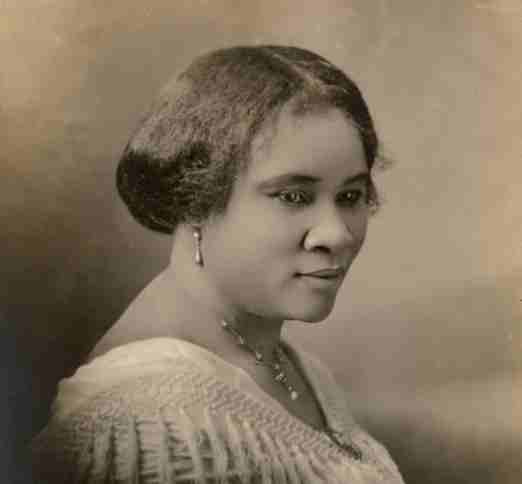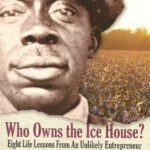As the Director of Entrepreneurship at a local community college, we offer a student success course base on the eight life lessons passed on to Clifton Taulbert from his uncle Cleve Morman from the book “Who Owns The Ice House, Eight Lesson from An Unlikely Entrepreneur.” An equally impressive story comes from Madame C.J. Walker (a.k.a. Sarah Breedlove), the first black woman millionaire.
She was born to slaves and worked the cotton fields in Louisiana. At age seven, she was orphaned and forced to move in with an older sister. At age fourteen, she married to escape the mistreatment from her sister’s husband. At seventeen, she had a daughter. At age 20, her husband died, forcing her to move to St. Louis where her three brothers lived.
Her brothers were all barbers and C.J. Walker took a job as a washerwoman where she earned about one dollar per day. As if things were not bad enough, she suffered from a common problem affecting black women of her day: hair loss. This hair loss was most likely a symptom of her poor diet and the harsh chemicals black women often used to their clear hair.
She learned about hair care from her brothers and became a commissioned sales agent for an African American hair care entrepreneur named Annie Malone. While working for Annie, she added to her knowledge of hair care but knew that Annie’s product was not quite right.
However, rather than reinvent the wheel, C.J. Walker added several vitamins and minerals known to promote healthy hair and created a new formula. By using the product herself, she saw her own hair return to its original thickness and knew her formula was more effective.
Even though she was a domestic servant in the early 1900’s with little to no hope of advancement, she longed for a life of financial independence. She began to think what life would be like if she could sell her new hair care solution.
Although C.J. Walker was illiterate, she had a knack for marketing. She knew she wanted to sell the product to as many black women as possible. Since most blacks like her could not read, advertising was out of the question. She also knew that few blacks would trust a white salesperson so she decided to operate her business using only black women selling to other black women.
Marketing was a primitive science back then and sales call primary involved the use of high-pressure tactics to sell a product to people who really did not need it. Instead, she tailored her product and distribution network to her customer’s needs and believed in selling by example.
C.J. Walker had all her sales gals dress in black skirts and white shirts and emphasized “cleanliness and loveliness.” Walking through a neighborhood, her “Walker Agents,” as they were called, were recognizable in their uniforms and sparkling hygiene. When most black women toiled in menial labor, Walker’s Agents gave them a ray of hope.
Walker realized that economic emancipation was a one way a black woman could break out of the cycle of discrimination and economic abuse so she compensated her agents very well.
Walker didn’t let life dictate her future, she developed a goal, navigated the obstacles in her way, and never quit. Being illiterate did not stop her. Rather, it forced her to look at other solutions.
What lesson can you take away from Walker’s story? How can you use your situation to look at life in a way that may be foreign to others?












